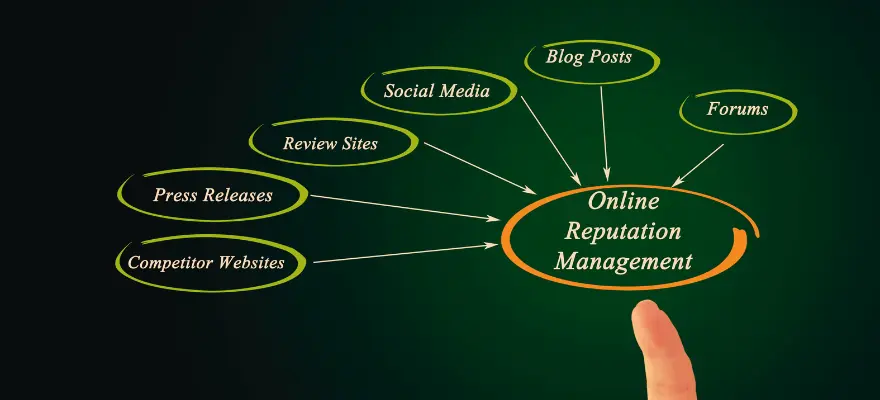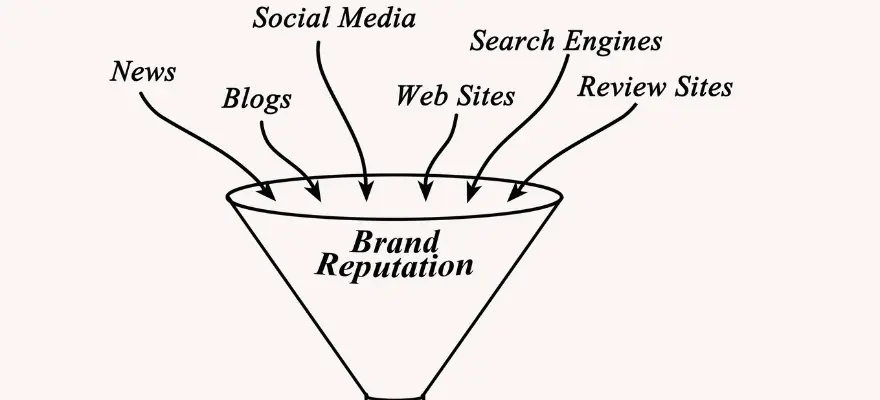Overview
Brand reputation management is critical because it directly influences consumer trust, search engine rankings (E-E-A-T), and overall revenue. In a digital-first market, 85% of consumers trust online reviews as much as personal recommendations. Effective management involves monitoring brand mentions, responding to feedback, and proactively building a positive digital footprint to protect against crises and ensure long-term business sustainability.
Why Reputation Management Matters
Brand reputation is the backbone of business success. If people don’t trust your brand, they won’t buy from you. Period.
A strong brand reputation means credibility, trust, and customer loyalty. A bad reputation? That’s a fast track to lost sales, negative press, and customers choosing your competitors instead.
Today, people don’t just stumble into businesses. They check online reviews, read social media comments, and make snap judgments about whether they trust your company.
Are people seeing the best version of your brand online, or are you losing customers before they even give you a chance?
We’re breaking down exactly how to take control of your brand reputation management before it takes control of you.
Why Online Reputation is Essential for Businesses

A business’s online reputation isn’t just about avoiding negative reviews. It’s about building trust with customers, investors, and partners. Here’s how it affects your business:
- Consumer trust: Positive online reviews help businesses build confidence with potential customers. They also influence purchase decisions, as most people read reviews before buying.
- Brand loyalty: Customers stick around when they trust a company. A loyal customer base translates into repeat business and word-of-mouth referrals.
- Market positioning: A strong reputation helps businesses stay ahead of competitors. A well-respected brand is more likely to gain customer preference over lesser-known competitors.
- Search engine rankings: A well-managed reputation boosts search engine visibility. High ratings and positive reviews improve a company’s standing on Google and other search engines, making it easier for new customers to find them.
- Business opportunities: A respected brand attracts partnerships, investors, and other growth opportunities. Companies with a solid reputation are more likely to secure funding and collaboration deals.
- Crisis resilience: A strong brand reputation provides a buffer against negative press. If an issue arises, a company with a positive history will recover more quickly than one with a poor reputation.
Key Reputation Factors to Watch
- Online reviews – Customers trust businesses with good reviews and actively seek feedback before making decisions.
- Social media presence – Regular engagement builds credibility and strengthens brand awareness.
- Brand perception – How people see your brand directly affects their willingness to buy from you and recommend your business to others.
- Transparency and communication – Businesses that respond to feedback, whether positive or negative, demonstrate accountability and integrity, which fosters long-term customer trust.
- Customer experience – Providing excellent service helps strengthen a company’s reputation and enhances positive word-of-mouth marketing.
- Crisis management preparedness – Having a solid plan in place ensures a quick and effective response to reputation threats.
Effective Reputation Management Strategies That Work

A solid reputation doesn’t happen by chance. It requires a proactive approach:
- Monitor Your Online Presence
- Use tools to track mentions and reviews.
- Set up Google Alerts for your brand.
- Regularly check social media for customer feedback.
- Encourage Positive Reviews
- Ask happy customers to leave reviews.
- Make the review process simple and accessible.
- Respond to reviews both positive and negative to show engagement.
- Manage Negative Feedback Wisely
- Address complaints professionally and promptly.
- Offer solutions and show you value customer feedback.
- Avoid arguing online, always keep it professional.
- Invest in Reputation Management Software
- Automate review monitoring and responses.
- Use sentiment analysis to understand customer opinions.
- Leverage AI-powered insights to improve brand perception.
- Build a Crisis Management Plan
- Be prepared for negative PR situations.
- Have a response strategy for potential reputation crises.
- Train employees on how to handle online criticism.
The Role of Brand Reputation in Business Growth

Reputation impacts everything: sales, partnerships, hiring, and even investor confidence. Businesses with a strong and positive brand reputation attract better opportunities and gain a competitive advantage in the market.
A respected brand opens doors to collaboration, attracts top talent, and secures long-term customer relationships. It also leads to stronger investor interest, increased media coverage, and higher customer retention. In contrast, a tarnished reputation can result in lost deals, declining sales, and a lack of consumer trust.
The difference between growth and stagnation often comes down to how well a company manages its brand perception with a good review management.
Real-World Examples
- Apple & Trust: Apple’s reputation for quality, innovation, and customer service keeps customers loyal despite premium pricing and intense competition.
- Tesla & Public Opinion: One viral tweet from Elon Musk can impact Tesla’s stock overnight, showing how sensitive brand perception is. The company’s branding, messaging, and customer engagement play a major role in its fluctuating reputation.
- Local Businesses & Reviews: A local restaurant with hundreds of positive reviews will always outperform a competitor with little to no feedback. Businesses that actively engage with customer feedback, respond to reviews, and build relationships in the community solidify trust and long-term success.
FAQ
What is reputation management?
Reputation management is the process of monitoring, influencing, and maintaining how people perceive a brand.
Why is online reputation management important?
Because first impressions are often made online. A negative reputation can drive customers away, while a positive one builds loyalty and trust.
How do I improve my business reputation?
Stay engaged with customers, monitor feedback, and handle negative reviews professionally. Transparency and trust go a long way.
What tools help with reputation management?
Reputation management software like Google Alerts, Hootsuite, and Trustpilot can help track and respond to feedback efficiently.
Conclusion
Reputation is everything in today’s digital world. Whether you’re a startup or a well-established business, maintaining a strong reputation should be a priority.
A proactive approach monitoring reviews, engaging with customers, and handling criticism effectively ensures your brand remains trustworthy and credible.
By investing in reputation management strategies, businesses can safeguard their image, build long-term success, and stay ahead of the competition.
Need expert help managing your brand’s reputation? Book a free consultation today and take control of your online presence!




